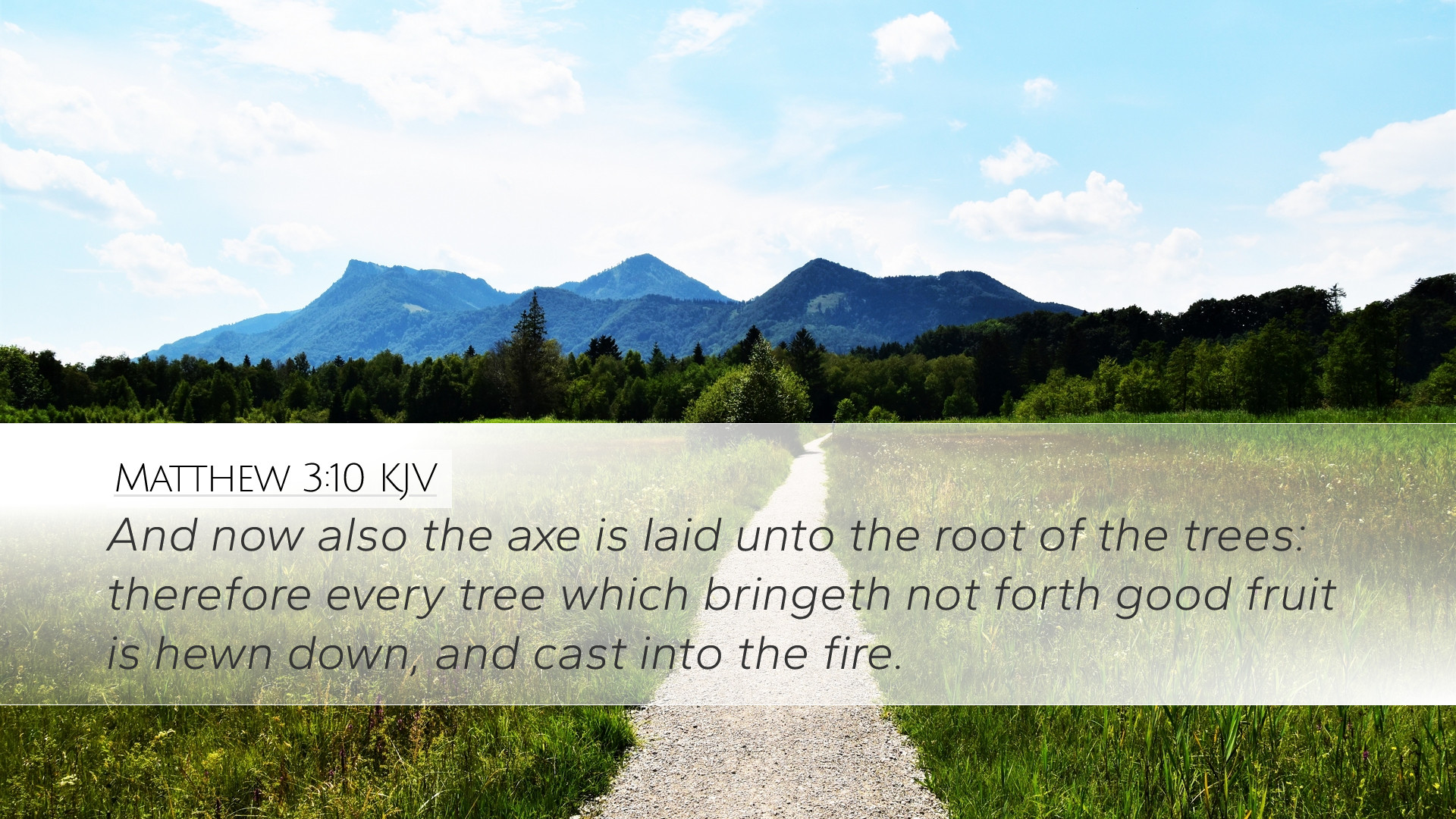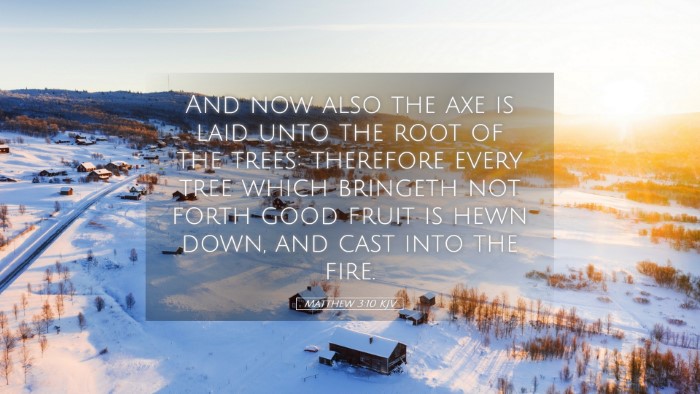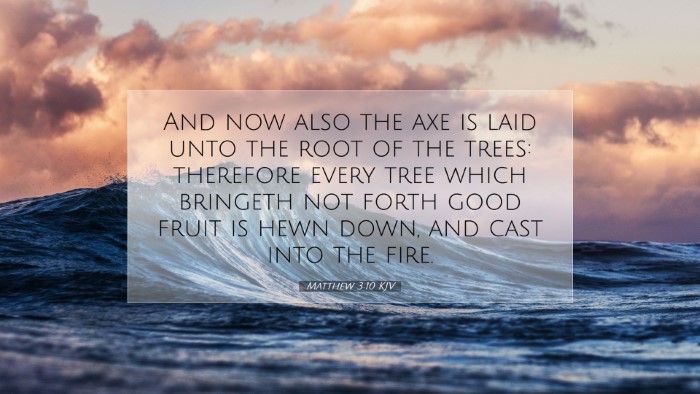Commentary on Matthew 3:10
Verse: "And even now the axe is laid to the root of the trees: therefore every tree which bringeth not forth good fruit is hewn down, and cast into the fire."
Introduction
Matthew 3:10 stands as a critical verse in the broader context of John the Baptist's ministry. This verse encapsulates profound theological themes such as judgment, accountability, and the imperative for righteous living. Scholars, pastors, and theologians alike find layers of meaning in both the literal and metaphorical aspects of this declaration.
The Ministry of John the Baptist
John the Baptist appears at a pivotal moment in the narrative of the New Testament, serving as a precursor to Christ. His call for repentance and moral reform signals a transition in the divine covenant with humanity.
Matthew Henry emphasizes John's role in preparing the way for the Lord, as one who heralds the imminent arrival of the Messiah. His message is one of urgency, underscoring the need for individuals to reflect on their spiritual condition.
Understanding the Axe
The imagery of the "axe" signifies impending judgment. Albert Barnes interprets the axe as a tool employed by God to indicate that judgment is near, suggesting that the time for bearing fruit is limited. The phrase "laid to the root of the trees" implies that the judgment is thorough and penetrating, addressing the very foundation of spiritual vitality.
- Symbolism of the Axe: The axe represents divine authority and the severity of God's judgment.
- Root Veneration: In biblical metaphor, roots symbolize stability and life; therefore, the imminent severance speaks volumes about the seriousness of unfruitfulness.
Examining the Trees
The metaphor of trees in this verse denotes individuals or communities who profess to follow the God of Israel. Adam Clarke elaborates on this symbolism by stating that trees are often representative of people, particularly in the context of their spiritual contributions and moral character. The criterion for evaluation is the production of "good fruit."
Good Fruit vs. Bad Fruit
John's proclamation highlights the distinction between productive and unproductive lives. The good fruit symbolizes the virtues that align with God's commandments—those acts and characteristics that reflect a faithful life.
- Good Fruit: Acts of kindness, love, justice, and faithfulness.
- Bad Fruit: Sinful behaviors reflecting greed, selfishness, and moral decay.
The Assurance of Judgment
"He is hewn down, and cast into the fire" serves as a dire warning. Wherever unfruitfulness exists, judgment shall follow, a theme echoed throughout Scripture.
Matthew Henry notes that this fire symbolizes eternal judgment, illustrating the seriousness with which God views the lack of spiritual fruitfulness. This perspective encourages believers to self-examine their lives, digging deeper into their relationship with God to ensure they are indeed fruitful.
The Call to Repentance
The context of this verse is wrapped in John the Baptist's exhortation for repentance. Repentance involves a transformational change as one turns away from sin towards God. The call to bear good fruit is rooted in this transformative process, where genuine faith must yield visible results. Albert Barnes reiterates that true repentance must manifest in actions aligning with the will of God.
Theological Implications
This verse emphasizes God's justice and righteousness. Every individual bears a personal responsibility to cultivate a life that produces good fruit, reflecting a vibrant faith. The notion that unfruitful lives face consequences serves as both a motivation for holiness and a call to introspection.
Conclusion
Matthew 3:10 encapsulates the urgency of John's message as he prepares the way for Christ. It is a poignant reminder of God's expectation for moral and spiritual fruitfulness and the sobering reality of divine judgment. For pastors, students, theologians, and Bible scholars, this verse offers a profound call to examine one's own life and ministry in the light of Scripture, considering what types of fruit are being produced.


